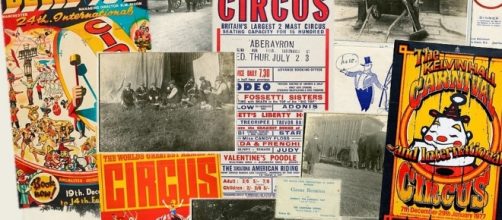A new exhibition celebrating the history of the circus has opened at the University of Sheffield, thanks to the Circus Friends Association, which has donated an archive of posters, photographs and other material collected over the past 80 years.
The collection includes items from such famous touring companies as Bertram Mills', Billy Smart's, Robert Brothers, Chipperfield's and Fossett's, as well as the permanent arenas of the Blackpool Tower Circus and Great Yarmouth Hippodrome, where circus shows have been presented for more than a century.
The collection is “one of the most import circus archives in the United Kingdom,” said a university spokesperson.
History
The word ‘circus’ dates back to Ancient Rome when arenas such as the Circus Maximus staged chariot races and gladiatorial battles. But the circus in its modern form is a British invention, started by horseman Philip Astley in 1768.
Astley invented the circus ring to perform acrobatic tricks on horseback near Westminster Bridge, but added clowns, strongmen and gymnasts to create the circus as we know it today.
Expansion
During the 19th century, the popularity of circus spread rapidly from England to Europe, America, Russia and beyond, incorporating local acts and traditions as it encountered them.
The circus enjoyed a boom as an inexpensive form of entertainment in the post-war years of the 20th century, when the two biggest circuses, Billy Smart’s and Chipperfields’ travelled the country in giant tents that could hold 6000-people, and travelled with menageries of hundreds of Animals.
Their success was boosted by Christmas Day Television broadcasts from the big top that became a yuletide tradition.
During the 1980s, dominance of the British circus scene passed to Gerry Cottle who’s shows were the setting for prime time Saturday evening TV show Seaside Special. In the 90s, Cottle went on to promote long-running touring productions by the Chinese State Circus, Moscow State Circus and freak-show inspired Circus of Horrors.
Las Vegas
More recently, Cirque du Soleil has proved the enduring appeal of circus skills by becoming the world’s largest theatrical producer, with large scale shows touring every continent and several permanent productions in Las Vegas.
According to Angela Haighton, from the University of Sheffield Library, “As a popular form of entertainment the circus is a significant part of our social history. The donation of this important collection means we can make it more widely accessible and preserve it for future generations.”
The exhibition runs until April 2, 2017.

